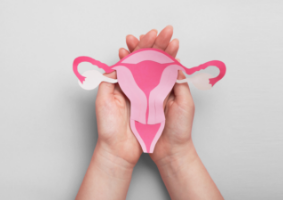The Importance of Distinguishing Between Aerobic Vaginitis and Bacterial Vaginosis

Title: The Importance of Distinguishing Between Aerobic Vaginitis and Bacterial Vaginosis
Date: June 9, 2022
Time: 2 p.m. ET
Presenter: Sandeep Mukherjee, MD
Discover a Molecular Testing Solution
Vaginal microbiota plays a central role in women’s health and reproduction. Vaginal microbiota is dynamic, and its bacterial and fungal community members play a role in its protection. However, these organisms can also cause vaginal infection if disrupted.
When the vaginal microbiome is disrupted, it creates an opportunity for protective microbes to decrease and pathogenic microbes to thrive. Hence, a dysbiotic state, and infections arise. Within infections, there are those caused by yeasts, which are anaerobic and aerobic organisms. Bacterial vaginosis (BV), which affects 15% of women at reproductive age, is characterized by anaerobic organism dysbiosis.
However, another more recently recognized clinical entity, aerobic vaginitis (AV), arises with aerobic organism dysbiosis. It is important to differentiate BV from AV, although sometimes it is not easy with traditional methods. Unfortunately, AV is sometimes confused with BV.
A molecular testing solution based on different bacterial combinations may allow distinction of BV versus AV, which has clinical significance with respect to treatment and care. This webinar will present a solution that could be employed to mitigate misdiagnosis of AV for BV.
Learning Objectives
This webinar will help you:
- Discuss the dynamics involved in the vaginal microbiome
- Identify the infectious states associated with vaginal dysbiosis
- Describe the limitations of traditional methods for diagnosing infections
- Propose a molecular testing solution for identifying and differentiating between pathogenic states of the vaginal microbiota
Watch on Demand Download Slides (PDF, 924KB)
This webinar is produced by Whitehat Communications, a provider of continuing education programs in clinical laboratory sciences that has been approved by the ASCLS P.A.C.E.™ Program. One P.A.C.E. credit hour will be provided for this complimentary, basic-level program.
Presenter

Sandeep Mukherjee, MD
Sandeep Mukherjee, MD, received his PhD in molecular biology from Jadavpur University in Kolkata, India, and completed his fellowship training at the University of Washington in Seattle. He has been the Scientific Director of Women’s Health and Infectious Disease at PathGroup in Nashville, Tennessee, since 2014. Dr. Mukherjee has more than 14 years of experience in molecular diagnostics encompassing women’s health, infectious diseases, and oncology.
Dr. Mukherjee’s current work involves the experience of clinical diagnostics, including clinical consultancy, technical oversight and management of lab operations, research, method development and validation, quality control and management, and regulatory oversight. Previously, he was the Director of Molecular Diagnostics at Cellnetix and held positions at Micronics, PhenoPath, and the Infectious Disease Research Institute. He has authored many publications in molecular diagnostics.